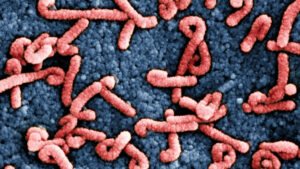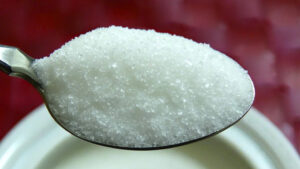Health
Dietitians suggest you may be consuming too much protein and not enough of another essential nutrient
PUBLISHED NOV 2 2024, 7:30 AM GMT+7

If your social media feed has shown you content about diets, weight loss, or nutrition, you’ve probably encountered a lot of “high-protein” recipes and influencers promoting protein-rich keto or carnivore diets. This raises the question: what’s behind this fascination with protein, and is it truly deserving of all the attention it receives?
Dietitians explain to Fortune that protein is more complex than social media often portrays, and this obsession may distract people from fulfilling other crucial nutritional needs.
According to Federica Amati, a registered dietitian and head nutritionist at Zoe, a UK-based nutrition and science company, “We don’t even need to think about daily protein grams.”
Here’s what dietitians want you to understand about protein and overall nutrition.
Why do we need protein?
Protein is a macronutrient composed of amino acids, essential for the structure of our cells, tissues, hormones, enzymes, and various bodily functions. It is vital to maintain a steady supply of amino acids through dietary protein for cell and tissue growth.
Registered dietitian Abbey Sharp highlights that protein is beneficial for overall health, noting that it supports weight management, satiety, immunity, hair and nail growth, muscle development, and metabolism maintenance.
Why are we so fixated on protein?
The preoccupation with protein is evident in grocery stores, where shelves are filled with shakes, cereals, powders, and even toaster pastries boasting high protein content. Social media is flooded with creative ways to increase protein intake, including mixing protein shakes with Diet Coke and making high-protein ice cream, with over 2.7 million Instagram posts tagged with #highprotein.
This fixation has surged alongside the growth of the fitness, nutrition, and weight-loss industries, says Amati. While protein is crucial for muscle building and can aid in weight loss, influencers often promote excessively high protein consumption, exceeding what most individuals actually need. Moreover, focusing solely on protein can lead to neglecting other essential nutrients.
Contrary to popular belief, the notion that people aren’t consuming enough protein is misleading, according to Amati and Sharp.
“If you’re meeting your caloric needs… you’re meeting your protein needs,” Sharp states.
According to Sharp, protein deficiency is typically found only among malnourished individuals or older adults with reduced appetites. Most individuals who consume adequate calories throughout the day are likely meeting or exceeding their protein needs, including vegans and vegetarians who eat a variety of nutrient-dense plant foods like edamame, lentils, and whole grains.
How much protein do I need daily?
While high-protein diets showcased on social media may feature daily intakes of up to 140 grams, the actual requirement is much lower.
The U.S. Department of Agriculture’s Dietary Guidelines recommend that 10% to 35% of daily caloric intake should come from protein sources. A more common measure is to consume 0.8 to 1.2 grams of protein per kilogram of body weight for adults. To convert your weight to kilograms, divide your weight in pounds by 2.2, then multiply by 0.8 and 1.2 to determine your protein range. For instance, someone weighing 150 pounds should aim for 54 to 82 grams of protein each day.
Even those who are very active are likely consuming enough to meet their protein needs due to increased appetite, Amati points out.
Older adults, however, require more protein to maintain muscle and bone mass, potentially increasing their intake to 1.8 grams per kilogram of body weight daily. Higher protein consumption can be particularly beneficial for menopausal women to help manage belly fat and body composition.
It’s crucial to recognize that protein requirements can vary from person to person, especially among older adults. However, Amati believes that the intense focus on protein has surpassed standard nutritional guidance, possibly leading to excessive protein consumption, which may have adverse health effects.
What are the consequences of consuming too much protein?
“Most risks associated with a high protein diet relate to the sources of protein — particularly when it involves excessive amounts of animal-based proteins that are also high in saturated fats,” Sharp explains.
Health
Advertise With Us
BVD Newsletters
Sign up for free newsletters and get more BVD delivered to your inbox
Get this delivered to your inbox, and more info about our products and services.
© 2024 BVD LLC. All Rights Reserved.
Data is a real-time snapshot *Data is delayed at least 15 minutes. Global Business and Financial News, Stock Quotes, and Market Data and Analysis.
Market Data Terms of Use and Disclaimers
Data also provided by REFINITY








